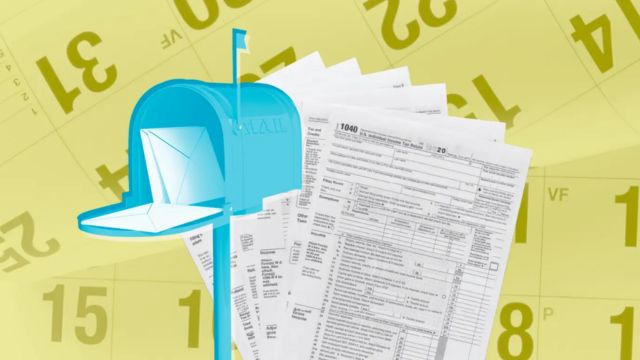As we approach the end of 2024, many people are starting to think about the 2025 tax season. The start of the tax season is an important date for taxpayers, accountants, and financial planners alike, as it marks the beginning of the annual process of filing tax returns.
Understanding when the 2025 tax season starts, what it means for your taxes, and how to prepare can help ensure you’re ready for a smooth filing experience.
When Does the 2025 Tax Season Start?
The IRS has confirmed that the 2025 tax season for individuals will officially begin on January 27, 2025. This is the date when the IRS will begin accepting and processing tax returns for the 2024 tax year. This date is crucial for those planning to file their returns early, as it marks the first day that returns can be filed electronically or via paper.
For most taxpayers, this means that they can begin filing their tax returns as soon as the IRS starts processing. However, many people may want to wait until they have all the necessary documents in hand, such as their W-2 forms, 1099s, and other income-related paperwork. It’s important to ensure you have all the correct documentation before filing to avoid mistakes or delays.
Why Does the Start Date Matter?
The start date of the tax season determines when you can officially submit your tax returns. While many people choose to file their taxes as soon as possible to receive their refund, others may prefer to wait until they have all their information gathered. In either case, understanding when the season begins helps taxpayers plan accordingly.
- Filing Early: Filing your tax return early, once the IRS opens, can expedite your refund, especially if you’re due a refund. Those who file electronically can typically expect faster processing times compared to paper returns.
- Refund Delays: Filing early also allows you to avoid the risk of last-minute delays, such as waiting for your W-2 form or 1099. Filing early ensures that if any issues arise, you have time to resolve them before the deadline.
- Avoiding Penalties: Filing on time is important for avoiding penalties and interest charges on any taxes owed. The IRS will start accepting returns on January 27, and the tax filing deadline for most taxpayers is April 15, 2025. However, if you need extra time, you can request an extension.
Important Dates in the 2025 Tax Season
While the official tax season starts on January 27, 2025, there are other important dates to keep in mind:
- January 27, 2025: IRS begins accepting tax returns for the 2024 tax year.
- February 15, 2025: This is the deadline for the IRS to begin processing tax returns that claim certain credits, such as the Earned Income Tax Credit (EITC) or the Additional Child Tax Credit (ACTC). Taxpayers filing with these credits may experience delayed refunds.
- April 15, 2025: The final day for filing your 2024 tax return without requesting an extension. If you need more time, you can file for an extension by this date.
- October 15, 2025: The final deadline for filing a tax return if you requested an extension.
How to Prepare for the 2025 Tax Season

Getting a head start on tax season is always a good idea, especially if you want to file early and avoid any last-minute stress. Here are a few tips for preparing:
- Gather Your Documents: Start collecting all necessary documents, including your W-2s, 1099s, investment statements, and receipts for any tax deductions or credits you may be eligible for. If you’re self-employed, make sure you have your business records ready as well.
- Consider Tax Changes: Keep an eye out for any changes to tax laws or policies that may affect your filing. Tax laws can change from year to year, and it’s important to be aware of any updates that could impact your return.
- Choose Your Filing Method: Decide whether you will file your taxes on your own or hire a professional. Using tax software or a tax professional can help ensure that your return is filed correctly and efficiently.
- Review Tax Credits and Deductions: Take time to research all potential tax credits and deductions that may apply to you. Common examples include the Child Tax Credit, the Earned Income Tax Credit, and the deduction for student loan interest.
- Check Your Tax Withholding: If you received a large refund in previous years or owed money to the IRS, consider adjusting your tax withholding for the coming year. This can help you avoid surprises when filing your return.
Filing Tips for 2025
Confirmed! Tennessee Declares New Tax Status: State Income Tax Eliminated for Good
- File Electronically: The IRS encourages taxpayers to file their returns electronically. E-filing is faster, more secure, and usually results in a quicker refund. Additionally, if you choose to e-file, you can opt for direct deposit, which can expedite the process even more.
- File Early to Avoid Delays: If you’re expecting a refund, filing early is the best way to get it sooner. Keep in mind that the IRS typically processes returns more quickly when filed electronically.
- Review Your Return Carefully: Before submitting your tax return, review it for any errors. Mistakes on your return can lead to delays in processing or, in some cases, penalties. Make sure all information is accurate, including Social Security numbers and income amounts.
Conclusion
The 2025 tax season officially kicks off on January 27, 2025, when the IRS begins accepting returns for the 2024 tax year.
Whether you’re filing early for a refund or taking your time to ensure accuracy, understanding the timeline and preparing in advance will make your tax season much smoother.
By gathering your documents, reviewing potential deductions, and staying informed about tax law changes, you can ensure that you’re ready to tackle the season head-on and make the most of your tax filing experience.




